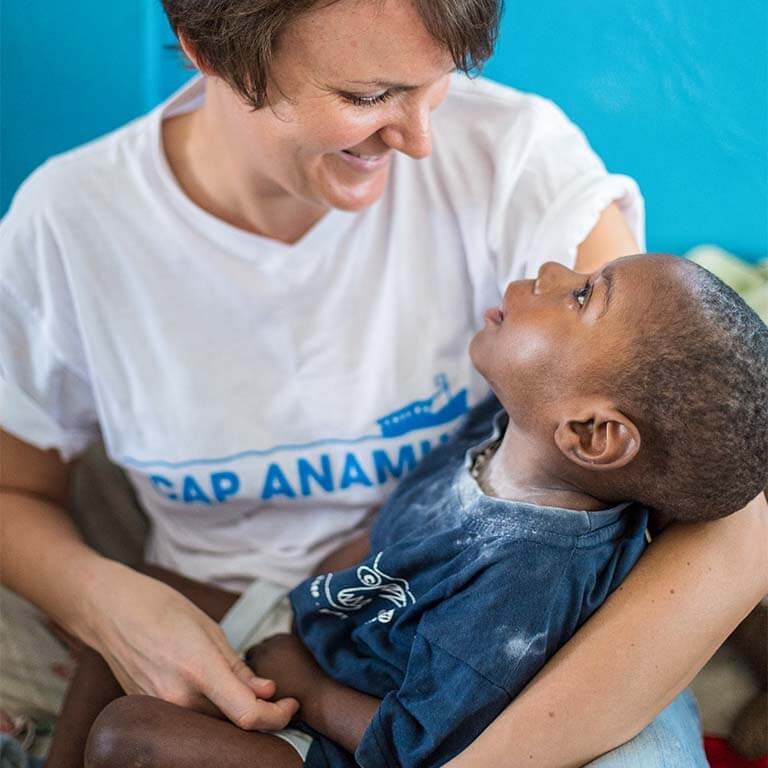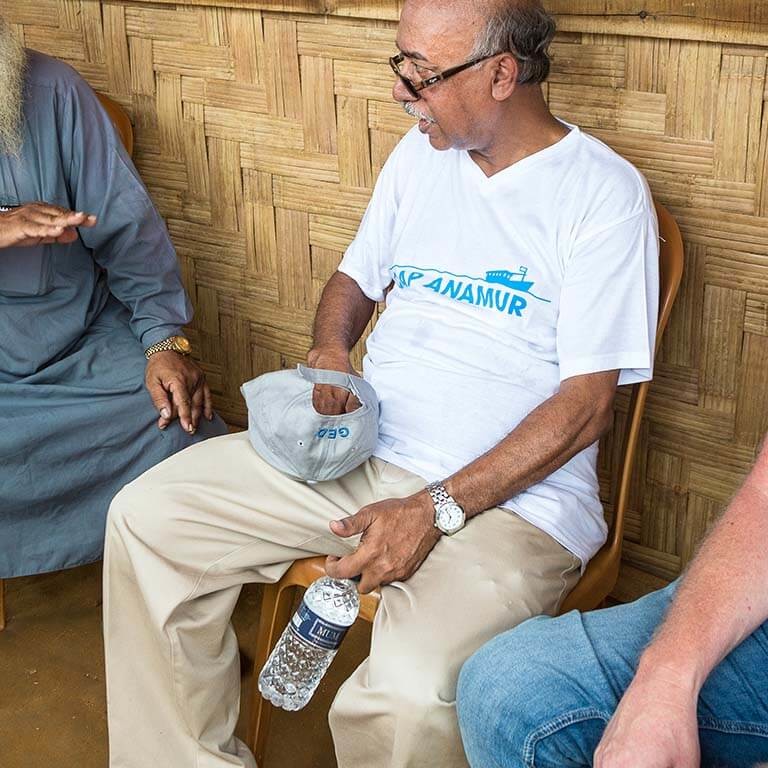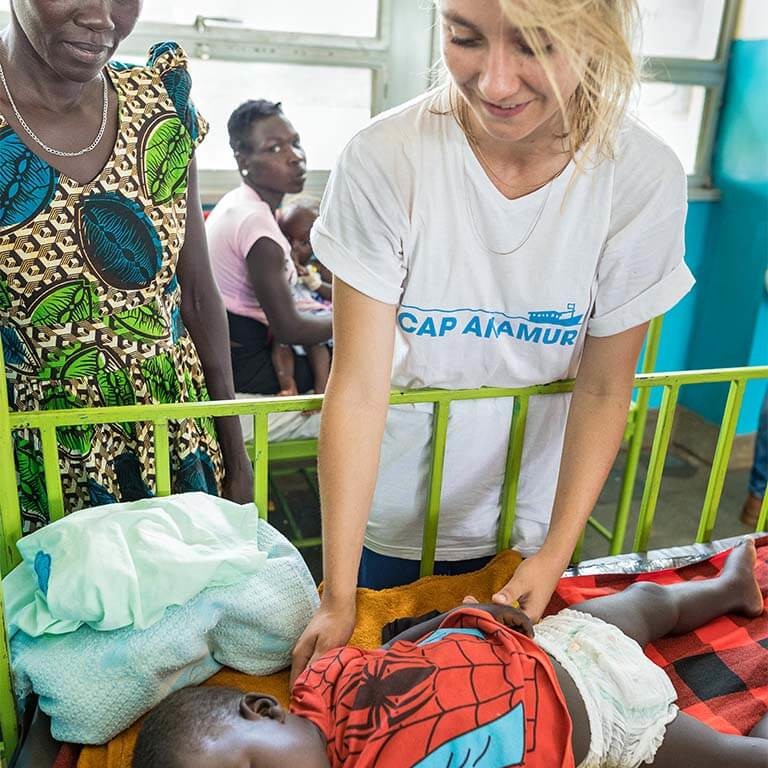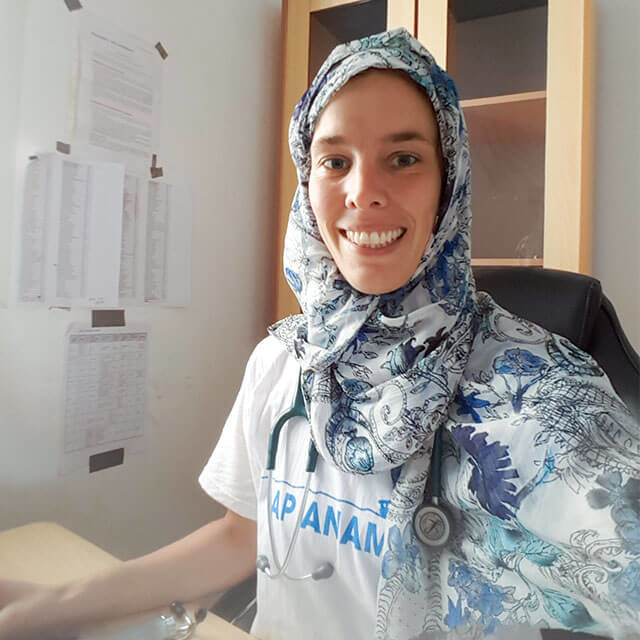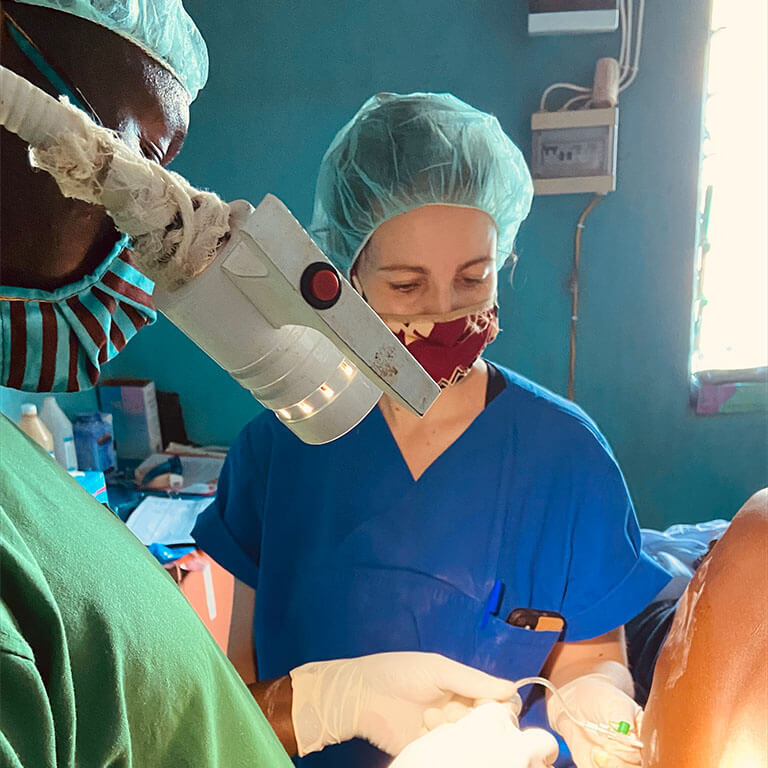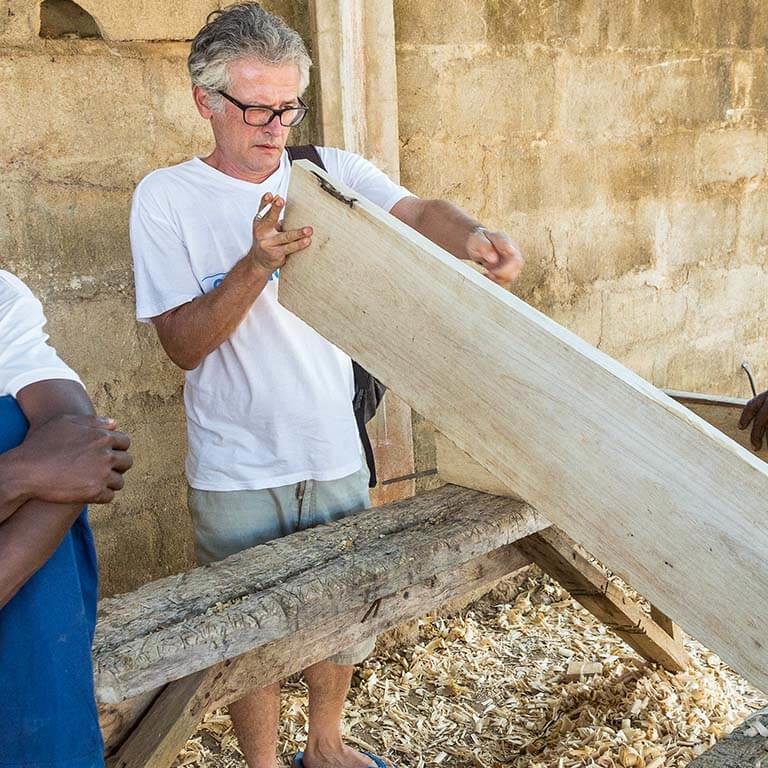Dr. Dorothea Kumpf
On assignment as a pediatrician in Somalia
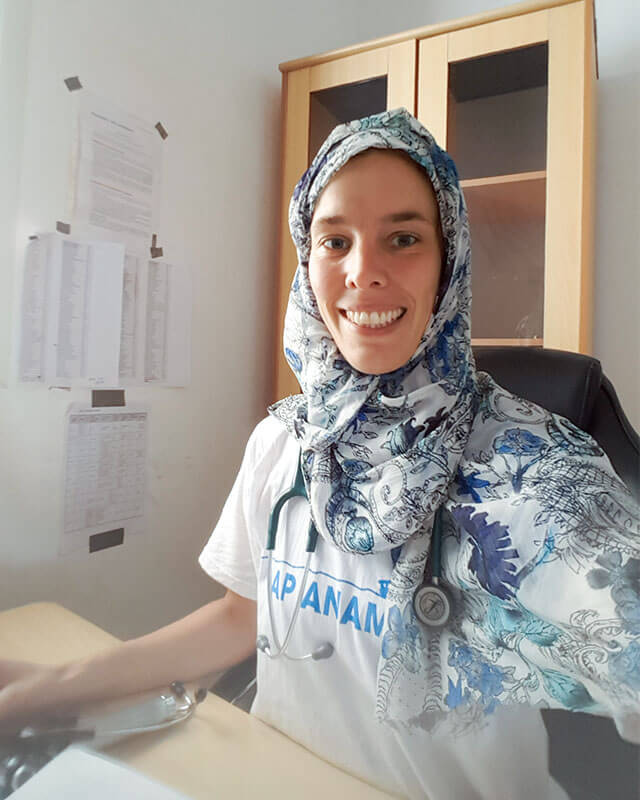
Name
Dr. Dorothea Kumpf
Age
33 years old
Profession
Pediatrician
Country of operation
Somalia
Duration of mission
6 months
My everyday life in the project
My day started every morning at 6 a.m. with a coffee and a view of the rising sun. At just before 7 a.m., my teammates and I rounded up our security guard and a driver and drove to the hospital. When we arrived there, we did our rounds together with the nurses and the Somaliland doctor Dr. Suleiman. After the morning meeting with the entire hospital staff, Dr. Suleiman and I treated the outpatients. Communication took place via an interpreter. I did learn a few words of Somali over time, but communication was mostly with the help of the nursing staff, some of whom understand English quite well, or through our interpreter. In addition, I took care of critical patients in the wards (there was a pediatrics ward, a women’s ward, a men’s ward and a measles ward, and also a stabilization center for malnourished children) or organized transfers of patients to the hospital in Burao, since they were better equipped there for operations and c-sections. Before lunch break, I did another round of the wards, then we had lunch at home, a little break, and around 4:30 p.m. we drove back to the clinic. Another two hours of outpatient clinic, partly seeing new patients, otherwise many patients from the morning were handed the lab results and came back for consultation and prescription. After a final round with doctors and nurses through the wards where all questions for the night were clarified, it was then closing time around 6 to 7 pm.
Two or three evenings a week, there were additional training events or meetings with nursing or even the entire team.
My spare time at the project:
Due to the constant police protection, spontaneous, private undertakings in our free time were difficult. Moreover, there weren’t many possibilities for leisure activities in Caynabo. But Fridays were usually free and we had beautiful walks in the surrounding area or sometimes an excursion, for example, to the next larger city Bruno.
Other than that, I’ve been reading a lot, writing a blog and emails for my friends and family, and growing a few small plants in front of the house.
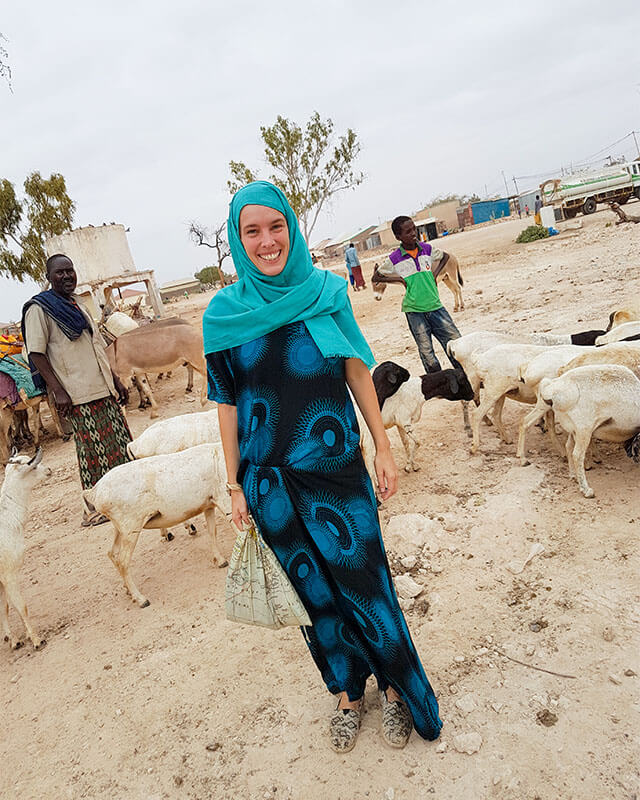
I particularly apreciated:
The openness of the hospital staff. Despite cultural and language barriers, they got involved with me and simply accepted me with my idiosyncrasies, ideas and sometimes very divergent ideas. From the beginning, I was respected as a doctor, and as I progressed, I noticed how we got to know each other better and really became a team. Also most of the other people you met were all more or less curious – but basically kind to us. I have always felt safe. That had worried me in advance, because I had imagined it differently.
I especcially missed:
My family! But I also missed spontaneous ventures with friends. And cheese.
My plans for the future:
Initially, I would like to continue working in pediatrics, learn a lot of new things, and specialize in neuropediatrics. I can well imagine going on another project abroad, at some point.
My best memories of my time on the project:
The best thing for me was when a patient who had previously been in a critical condition finally got better. There was Mustafa, a ten-year-old boy with measles – he was very malnourished and had pneumonia. He had been feverish and in need of oxygen for over 20 days, but he finally made it. It took him an incredibly long time to regain his strength, but I’ll never forget the day he went home.
I also particularly remember two-year-old Mubarik, who was seriously ill and massively malnourished when he came to us. The moment when the little one ate something himself for the first time was indescribably beautiful.
There are just too many examples to this question…
Team members in portrait
Thorsten Kirsch works as a nurse for Cap Anamur in Somaliland. His most important piece of luggage for the trip: His guitar. Being involved in areas where his strengths lie and having an incredible number of opportunities for further training - Thorsten has taken a lot away for himself from his assignment.
Pediatric nurse Simone Ross had great experiences in both Sierra Leone and Uganda. Working in the emergency room, in the infant and pediatric wards, training local staff, organizing materials for the laboratory - the varied and diverse tasks were what she appreciated most about her work in the project.
As project coordinator, Shabbir Ahmed takes care of the health care facilities in Bangladesh with which Cap Anamur has cooperation agreements.
Midwife Sarah Schütz worked for six months in the Central African Republic at our hospital in Bossembélé. There she helped deliver many children including twins and premature babies.
Nurse Nele Grapentin's first mission took her to Uganda, but it is by no means to be her last mission for Cap Anamur. The curiosity of the children, the incredible strength of the Ugandan women and such a diverse country - when Nele Grapentin talks about her mission, she quickly goes into raptures.
Mathias Voss, a nurse, spent more than a year working in our hospital in Sudan. His duties included ward, emergency room or maternal-child clinic rounds and continuing education for local staff members.
Above all, the strong women impressed nurse Karina Busemann in Somaliland. If she had to list all the fond memories she has of her time on the project, it would probably make an entire book. The laughing children will remain in her memory for a long time.
Pediatrician Dorothea Kumpf was in Somalia for Cap Anamur. For six months, the young woman worked in a hospital in Somalialand, an area in the north of the country. Especially the open nature of the population remained in her lasting memory.
The nurse Anika Wentz talks about her 6 month assignment in our hospital in the Nuba Mountains in the south of Sudan. There, she experienced many things that impress her to this day.
Andreas Tsukalas works as an architect for Cap Anamur in Somaliland. This is already his sixth deployment.
Afghan-born Faisal Haidari works as a project coordinator for Cap Anamur in Afghanistan. Since 2001, the Afghan, of Tajik descent, has been taking care of the progress of Cap Anamur projects in troubled Afghanistan.


